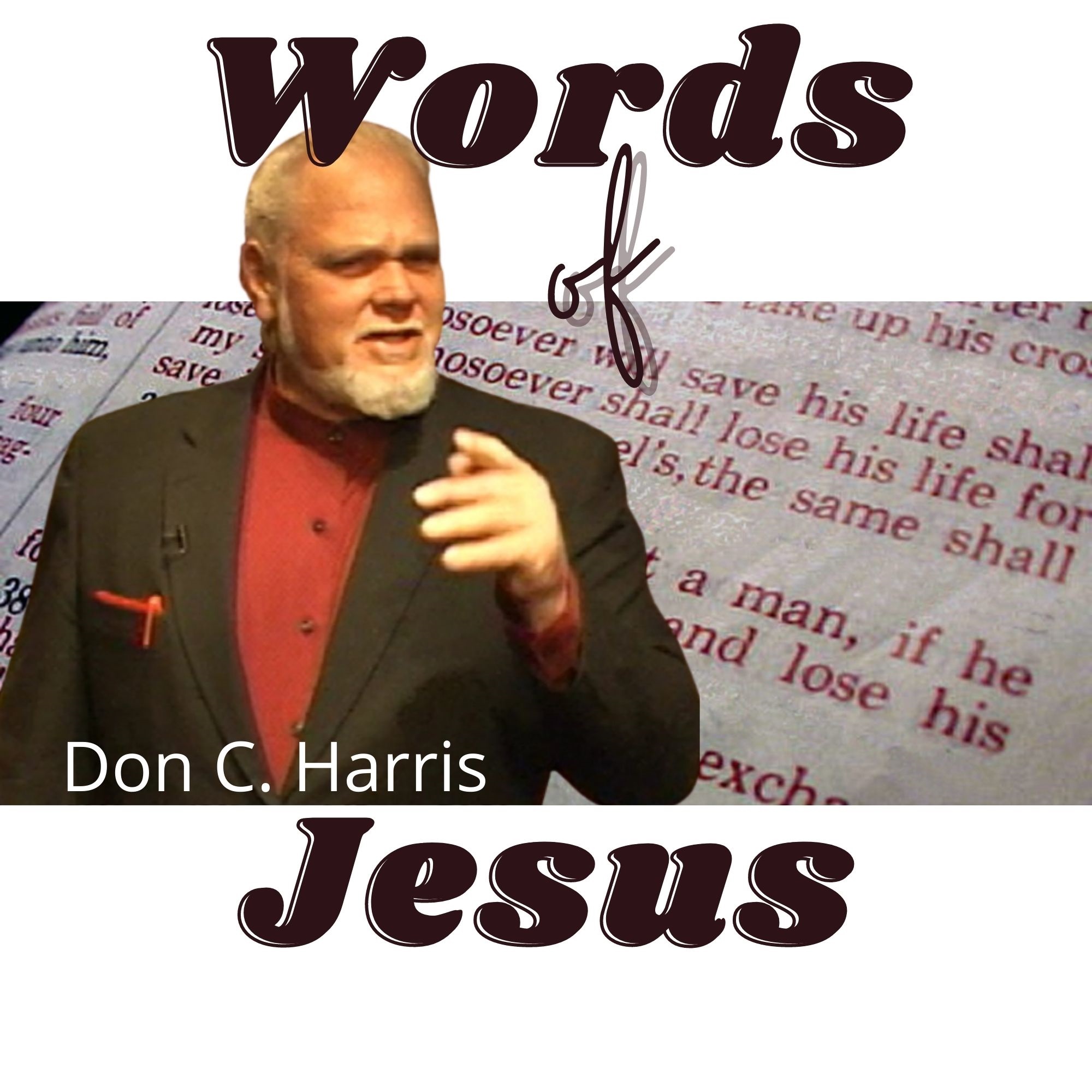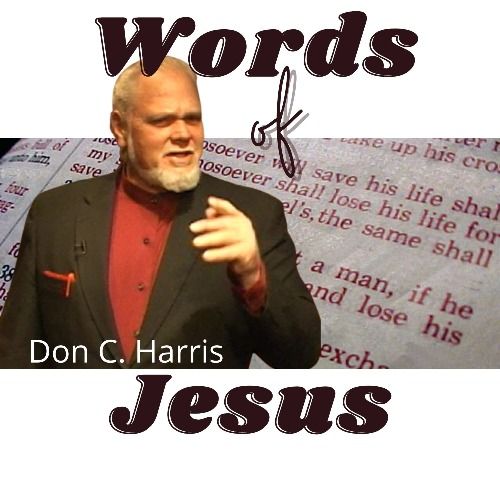Eternal Consequences
...your faith should not stand in the wisdom of men, but in the power of God. Howbeit we speak wisdom among them that are perfect: yet not the wisdom of this world, nor of the princes of this world, that come to nought: But we speak the wisdom of God in a mystery, even the hidden wisdom, which God ordained before the world unto our glory: Which none of the princes of this world knew: for had they known it, they would not have crucified the Lord of glory. 1 Corinthians 2
***
113: Barabbas Released And Jesus Mocked
Matthew 27:15-30; Mark 15:6-19; Luke 23:13-25; John 18:39-19:16
Barabbas Released And Jesus Mocked
When Pilate could find nothing in Jesus worthy of death, he said to Jesus’ accusers:
“Ye have a custom that I should release unto you one at the Passover. Will ye therefore that I release unto you the King of the Jews?”
The people cried out:
“Not this man, but Barabbas.”
Barabbas was a robber.
So Barrabas–the insurrectionist, robber, and murderer–was released; and Jesus was turned over to be crucified.
He was scourged by Pilate, and the soldiers who guarded him covered him with a purple robe and placed a crown of thorns on his head. Then, as they struck him with their hands, they said:
“Hail, King of the Jews!”
Then Pilate said to the people:
“Behold, I bring him forth to you, that ye may know that I find no fault in him.”
As Jesus came out, garbed in purple and wearing the crown of thorns, Pilate said:
“Behold the man!”
The chief priests and officers cried out:
“Crucify him, crucify him.”
Pilate said to them:
“Take ye him and crucify him, for I find no fault in him.”
Jesus’ accusers replied:
“We have a law, and by our law he ought to die, because he made himself the Son of God.”
When he heard this, Pilate was afraid. He asked Jesus:
“Whence art thou?”
Jesus did not answer.
Pilate tried again, saying:
“Speakest thou not unto me? Knowest thou not that I have power to crucify thee, and have power to release thee?”
Jesus answered him, saying:
“Thou couldest have no power at all against me, except it were given thee from above. Therefore he that delivered me unto thee hath the greater sin.”
Again Pilate sought to release Jesus, but the people shouted:
“If thou let this man go, thou art not Caesar’s friend. Whosoever maketh himself a king speaketh against Caesar.”
Then Pilate took Jesus before the judgment seat in the place called the Pavement, known in Hebrew as Gabbatha. It was about the sixth hour. Pilate said to the Jews:
“Behold your King!”
The Jews shouted:
“Away with him, away with him, crucify him.”
Pilate answered:
“Shall I crucify your King?”
The chief priests replied:
“We have no king but Caesar.”
The Pilate delivered Jesus to the chief priests to be crucified. They took him and led him away.
***
114: Jesus’ Trip To Calvary
Matthew 27:31, 32; Mark 15:20-22; Luke 23:26-32; John 19:17
After Jesus had been mocked, and the purple robe had been taken from him, they dressed him again in his own clothes and led him away to be crucified.
The guards forced Simon–A Cyrenian, the father of Alexander and Rufus–to carry the cross.
Two common criminals, also sentenced to death, were in the procession. There were a large number of people following, many of them women who bewailed and lamented for Jesus. Hearing their crying, Jesus turned to them and said:
“Daughters of Jerusalem, weep not for me, but weep for yourselves, and for your children. For, behold, the days are coming in which they shall say, ‘Blessed are the barren, and the wombs that never bare, and the paps which never gave suck.’ Then shall they begin to say to the mountains, ‘Fall on us;’ and to the hills, ‘Cover us.’ For if they do these things in a green tree, what shall be done in the dry?”
***
115: The Crucifixion Of Jesus
Matthew 27:33-35, 39-44; Mark 15:23-32; Luke 23:33-43; John 19:17-27
When they had arrived at Calvary Jesus was given vinegar mingled with gall, which he tasted slightly but would not drink.
Then Jesus and the two common criminals were all nailed to crosses: one on the left, one on the right, with Jesus in the center.
Jesus said:
“Father, forgive them; for they know not what they do.”
Then Pilate made a sign that was written in Hebrew, Greek, and Latin. It was put on top of Jesus’ cross. It read:
JESUS OF NAZARETH
THE KING OF THE JEWS
The chief priests objected to the sign, saying to Pilate:
“Write not ‘The King of the Jews,’ but that he said, ‘I am King of the Jews.’”
Pilate answered:
“What I have written I have written.”
The four soldiers who had crucified Jesus took his garments and divided them into four parts, one part for each. His coat, however, was in one piece, without seam. The soldiers did not tear it but said to one another:
“Let us not rend it, but cast lots for it, whose it shall be.”
Thus was the Scripture fulfilled which said:
“They parted my raiment among them, and for my vesture they did cast lots.”
The spectators, the chief priests, elders, scribes, the soldiers who had crucified him, and even one of the common criminals on his cross reviled and mocked Jesus.
The scribes and elders said:
“He saved others. Himself he cannot save. If he be the King of Israel, let him now come down from the cross, and we will believe him. He trusted in God. Let him deliver him now, if he will have him; for he said, “I am the Son of God.’”
Others said:
“Thou that destroyest the temple, and buildest it in three days, save thyself. If thou be the Son of God, come down from the cross.”
The soldiers offered him vinegar to drink, saying:
“If thou be the King of the Jews, save thyself.”
Some said:
“He saved others. Let him save himself, if he be Christ, the chosen of God.”
While those around the cross were reviling Jesus, one of the criminals joined in, saying:
“If thou be Christ, save thyself and us.”
The other rebuked him, saying:
“Dost not thou fear God, seeing thou art in the same condemnation? And we indeed justly, for we receive the due reward of our deeds; but this man hath done nothing amiss.”
Then he turned to Jesus and said:
“Jesus, Lord, remember me when thou comest into thy kingdom.”
And Jesus answered him, saying:
“Verily I say unto thee, ‘Today shalt thou be with me in paradise.’”
Standing in the shadow of the cross was Mary, the mother of Jesus, and his mother’s sister, also called Mary, and Mary Magdalene. Jesus saw the disciple whom he loved standing by. From the cross Jesus said to his mother regarding this disciple.
“Woman, behold thy son!”
Then he said to the disciple:
“Behold thy mother!”
From that hour the disciple became a son to Jesus’ mother and welcomed her into his home.

